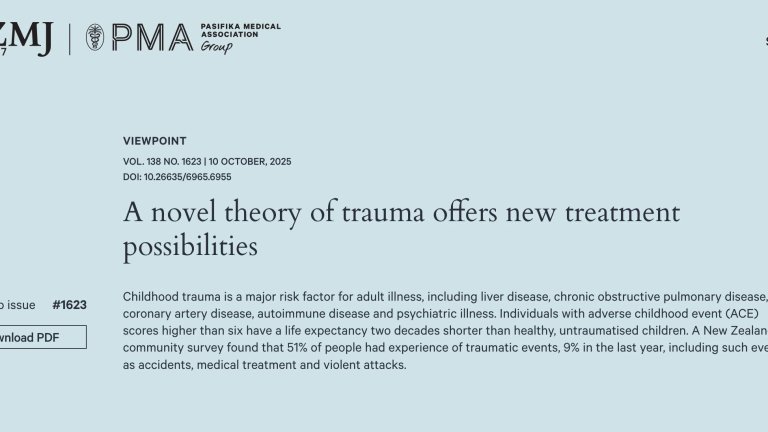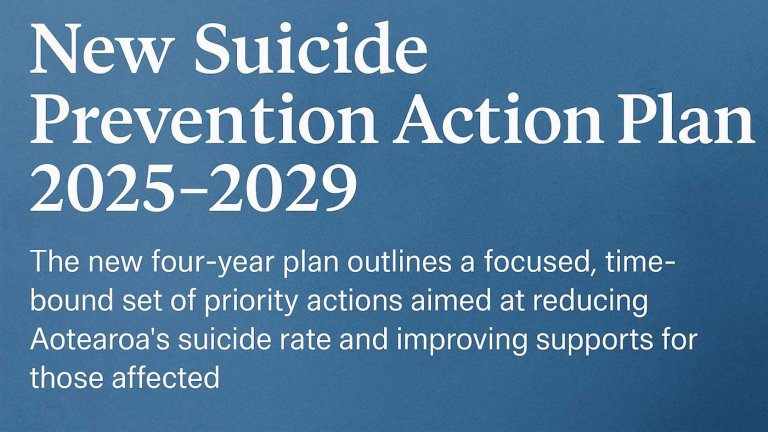
At Kiwis For Good, mental health is about more than just awareness—it’s about action. It’s about giving people the tools, support, and opportunities they need to build stronger, healthier, and more fulfilling lives.
We don’t just talk about mental health. We do something about it.
Through innovative programmes, real-world support, and powerful storytelling, we’re changing the way mental health is approached in New Zealand. Our work helps people find purpose, heal from trauma, ease financial burdens, and rewrite their futures. Our initiatives provide real solutions for people struggling with mental health challenges, trauma, and financial stress.

 What We Do
Supporting Survivors: Our Partnership with The BRAVE Foundation
Surviving sexual assault is a deeply painful experience—one that no one should have to face alone. That’s why we’ve partnered with The BRAVE Foundation—a charity dedicated to helping survivors heal, rebuild, and reclaim their lives.
Learn more
What We Do
Supporting Survivors: Our Partnership with The BRAVE Foundation
Surviving sexual assault is a deeply painful experience—one that no one should have to face alone. That’s why we’ve partnered with The BRAVE Foundation—a charity dedicated to helping survivors heal, rebuild, and reclaim their lives.
Learn more
 What We Do
The Hero’s Journey: A Free Programme for Young Kiwis Who Want More From Life
A completely free program designed to help young New Zealanders (ages 16-25 build confidence, strength, and a real sense of purpose. This isn’t just about feeling better—it’s about becoming unstoppable.
Learn more
What We Do
The Hero’s Journey: A Free Programme for Young Kiwis Who Want More From Life
A completely free program designed to help young New Zealanders (ages 16-25 build confidence, strength, and a real sense of purpose. This isn’t just about feeling better—it’s about becoming unstoppable.
Learn more
 What We Do
New Online Store
Our store features 8 original T-shirt designs, available in a range of colours, each created to spark conversation and spread positivity. You’ll also find our collection of digital kids’ books — beautifully illustrated PDFs that make reading fun and accessible for families everywhere. Every purchase helps fund projects that strengthen communities, support young people, and build a brighter future.
Learn more
What We Do
New Online Store
Our store features 8 original T-shirt designs, available in a range of colours, each created to spark conversation and spread positivity. You’ll also find our collection of digital kids’ books — beautifully illustrated PDFs that make reading fun and accessible for families everywhere. Every purchase helps fund projects that strengthen communities, support young people, and build a brighter future.
Learn more
 What We Do
The Science of Healing: Somatic Compassion
This Mental Health Week, we’re proud to introduce a powerful new way forward for mental health in Aotearoa. Somatic Compassion is a groundbreaking, science-based approach to healing trauma — safely and gently, through the body as well as the mind.
Learn more
What We Do
The Science of Healing: Somatic Compassion
This Mental Health Week, we’re proud to introduce a powerful new way forward for mental health in Aotearoa. Somatic Compassion is a groundbreaking, science-based approach to healing trauma — safely and gently, through the body as well as the mind.
Learn more
 What We Do
Changing the Conversation: Raising Mental Health Awareness Through Multimedia
At Kiwis For Good, we believe in breaking down barriers through powerful storytelling. That’s why we use documentaries, short films, and viral content to shift perspectives, challenge outdated thinking, and give people the tools to change their lives.
Learn more
What We Do
Changing the Conversation: Raising Mental Health Awareness Through Multimedia
At Kiwis For Good, we believe in breaking down barriers through powerful storytelling. That’s why we use documentaries, short films, and viral content to shift perspectives, challenge outdated thinking, and give people the tools to change their lives.
Learn more
 What We Do
The 'Bring Back Storytime' Campaign!
Once upon a time, bedtime stories were more than just words on a page—they were moments of connection, comfort, and learning. In today’s fast-paced world, those moments are fading. But we believe it’s time to bring them back.
Learn more
What We Do
The 'Bring Back Storytime' Campaign!
Once upon a time, bedtime stories were more than just words on a page—they were moments of connection, comfort, and learning. In today’s fast-paced world, those moments are fading. But we believe it’s time to bring them back.
Learn more
 Social Issues
80 New Zealanders a Year: The Lives We Could Save with Voluntary Recovery Houses
Every year in Aotearoa, more people die by suicide in the first month after leaving a mental health inpatient unit than during the entire time they were on the ward. The numbers are brutal and stubbornly unchanged for 15 years.
Read
Social Issues
80 New Zealanders a Year: The Lives We Could Save with Voluntary Recovery Houses
Every year in Aotearoa, more people die by suicide in the first month after leaving a mental health inpatient unit than during the entire time they were on the ward. The numbers are brutal and stubbornly unchanged for 15 years.
Read
 Social Issues
A Kiwi Leading the Way in Healing Trauma
At Kiwis For Good, we love seeing New Zealanders push the boundaries of what’s possible — especially when it comes to mental wellbeing. One of our trustees, Dr Robin Youngson, is helping to bring a remarkable new approach to trauma healing to Aotearoa.
Read
Social Issues
A Kiwi Leading the Way in Healing Trauma
At Kiwis For Good, we love seeing New Zealanders push the boundaries of what’s possible — especially when it comes to mental wellbeing. One of our trustees, Dr Robin Youngson, is helping to bring a remarkable new approach to trauma healing to Aotearoa.
Read
 Social Issues
Christine’s Story
Hi, my name is Christine. I am a partner, daughter, cousin, granddaughter, sister, mother of two, and a proud bonus mum to another two.
Read
Social Issues
Christine’s Story
Hi, my name is Christine. I am a partner, daughter, cousin, granddaughter, sister, mother of two, and a proud bonus mum to another two.
Read
 Social Issues
A Moment to Rethink: Policing, Protection, and Public Trust
Residents of of Clyde Rd, Bryndwr, Christchurch were alarmed by the sound of gunshots around 11pm on 13th August 2025 ,and woke to the shocking news that a woman, that police were called to protect during a domestic incident, was fatally shot by officers.
Read
Social Issues
A Moment to Rethink: Policing, Protection, and Public Trust
Residents of of Clyde Rd, Bryndwr, Christchurch were alarmed by the sound of gunshots around 11pm on 13th August 2025 ,and woke to the shocking news that a woman, that police were called to protect during a domestic incident, was fatally shot by officers.
Read
 Social Issues
New Zealand Launches Suicide Prevention Action Plan 2025–2029
The Suicide Prevention Action Plan 2025–2029 builds on the 2019 'Every Life Matters' strategy and sets out a focused, time-bound series of actions aimed at saving lives and improving outcomes for vulnerable communities.
Read
Social Issues
New Zealand Launches Suicide Prevention Action Plan 2025–2029
The Suicide Prevention Action Plan 2025–2029 builds on the 2019 'Every Life Matters' strategy and sets out a focused, time-bound series of actions aimed at saving lives and improving outcomes for vulnerable communities.
Read
 Social IssuesCulture
Miracle in Raglan: A New Hope for Mental Health in New Zealand
When we first connected with Dr. Robin Youngson, it felt like discovering a kindred spirit in the fight for true mental health reform. Dr. Youngson, a former anaesthetist turned author and compassionate care advocate, has dedicated his life to bridging the gap between science and the profound, often overlooked, power of human connection. After reading his book, The Science of Miracles, I knew his message had the potential to reshape how we view and approach mental health in New Zealand.
Read
Social IssuesCulture
Miracle in Raglan: A New Hope for Mental Health in New Zealand
When we first connected with Dr. Robin Youngson, it felt like discovering a kindred spirit in the fight for true mental health reform. Dr. Youngson, a former anaesthetist turned author and compassionate care advocate, has dedicated his life to bridging the gap between science and the profound, often overlooked, power of human connection. After reading his book, The Science of Miracles, I knew his message had the potential to reshape how we view and approach mental health in New Zealand.
Read
For the latest news and projects, keep up-to-date with our newsletter. We promise not to spam you; we get enough of that ourselves!